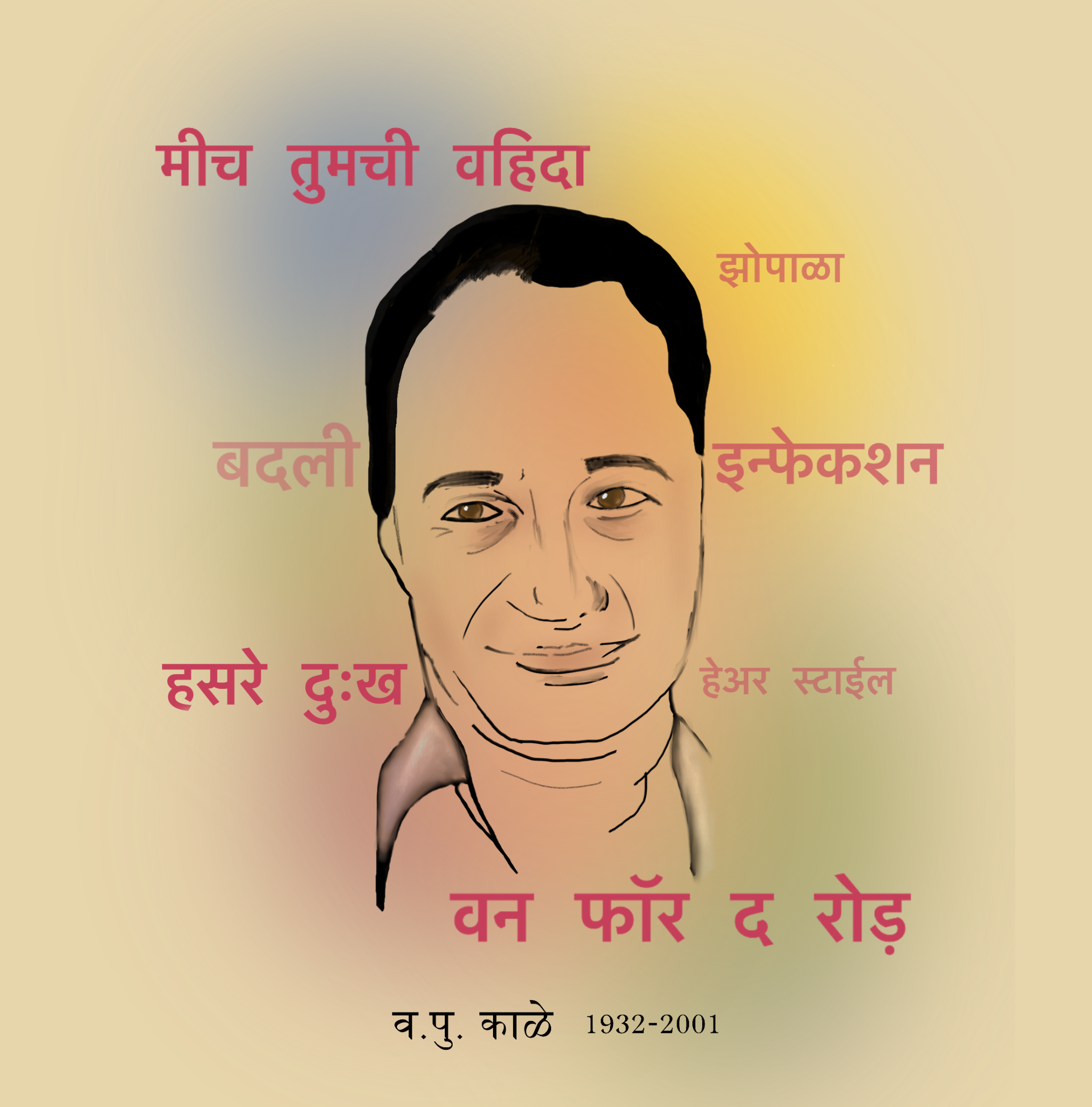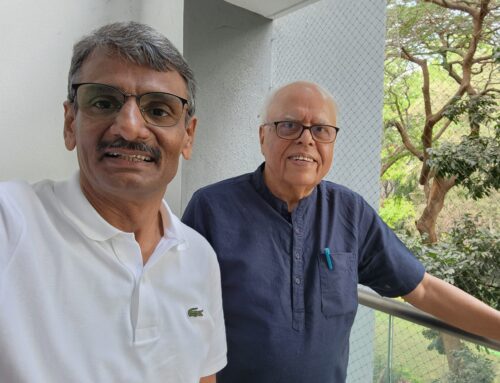The writing of one of Maharashtra’s greatest writers, Vasant Purushottam Kale, fondly known as वपु (VaPu), has a unique charm, blending humor, wit, and deep moral insights in a way that made his stories unforgettable. He had a vast fan following, not just among avid readers but also among those who liked to listen to his stories.
I first listened to and read Va Pu Kale’s stories during my teenage years. His storytelling is an exhilarating rollercoaster ride—one moment you’d be laughing out loud, and the next, you’d be left in awe. His stories made me laugh, made me think, and often left me with lessons that stayed with me for life. While I remember him for many things, one particular takeaway from his story हसरे दुःख (Hasare Dukh) has stuck with me over the years—something that, unknowingly, made me a little more organized.
But before I get to that, let me share a few gems from Hasare Dukh that showcase how he masterfully blended humor, wit, and wisdom.
While describing a visit to someone’s home in Mumbai, he remarks:
“ज्यांच्या जागा उतरण्यासारख्या प्रशस्त आहेत त्यांची मनं प्रशस्त नाहीत. आणि ज्यांची मनं प्रशस्त आहेत त्यांच्या जागा इतक्या लहान आहेत की यजमान आणि पाहुणा दोघांनाही संकोच वाटावा.”
(“Those who have spacious homes often have narrow minds, while those with generous hearts often live in spaces so small that both the host and the guest feel constrained.”)
And when talking about food offered by a generous host, he says:
“चव पदार्थाची असते का? तुम्ही ज्या भावनेने तो पदार्थ तुम्हाला ऑफर केला जातो त्या भावनेची पहिली चव असते.”
(“Does taste belong to the food itself? The first taste comes from the emotion with which it is offered.”)
VaPu had an uncanny ability to capture life’s simplest truths in a way that felt lighthearted but left you thinking long after.
Now, coming to the quote that changed my perspective on organization and discipline. In Hasare Dukh, the host prepares a perfect chutney using a pata varvanta (traditional stone grinder), as described by VaPu –
“सुरेख चटणी वाटून चटणीचा गोळा करून त्यांनी सटामध्ये ठेवून दिली आणि चटणी वाटण्यापेक्षा इम्पॉर्टंट गोष्ट केली ती म्हणजे पाटा वरवंटा धुऊन ठेवला.”
“After making a perfect chutney and setting it aside, he did something even more important than making the chutney itself—he washed the pata varvanta.”
At first, I found this amusing—not just because of the observation itself, but because of Va Pu’s clever wordplay. He didn’t just say that the host cleaned the grinder—he emphasized that washing it was more important than making the chutney itself. That exaggeration made me laugh, but it also stuck with me.
People often procrastinate on “washing the grinder,” believing that what they’re currently working on is more important. But in reality, delaying small wrap-up tasks only makes them harder later. Worse, when you need to start fresh, you find yourself stuck because things weren’t left ready for the next time.
Over time, I started casually mentioning this line in my everyday life whenever I saw similar situations. Eventually, I began following it myself. Whenever I completed a task, I instinctively made sure there were no loose ends—whether it was finishing a project, responding to emails, or organizing my workspace. This habit gradually became my signature style of working—never leaving things undone just because they seemed less urgent in the moment.
Va Pu’s simple, witty remark turned into one of my core principles: finish completely, not just adequately. And to this day, every time I wrap up a task properly, I think of that pata varvant






